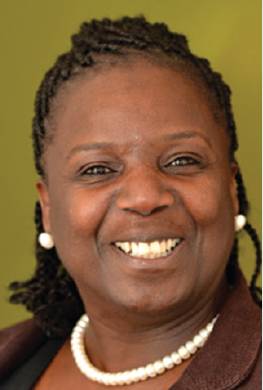Continuing Professional Development
Making CPD work for you
Millicent Grant describes how CILEx members can use the new CPD requirements to best advantage.
Like me, you may have taken a little time to adjust to the changes introduced by the new CILEx requirements for CPD and what it means in practice. It is easy to understand the requirement to undergo a certain number of hours in our specialist areas of law, and possibly some other activities or courses that would meet the requirements. But what of the need to plan ahead and then evaluate, and on what we can do to meet the professionalism element?
Having completed the new CPD log for two years now, I have realised that meeting the new requirement of professionalism is a tool which members can use to plan and develop their careers. It requires us to consider what we would like/need to learn over the CPD year in order to maintain and develop as a legal professional. It requires taking a longer view of our professional development, more than just working month to month - or year to year - doing the same thing. It is now wider than just maintaining up-to-date knowledge of our specialist areas of law and practice: it takes a change of outlook and mindset.
As long ago as in Roman times, the philosopher Seneca observed that ‘luck is what happens when preparation meets opportunity’ . One interpretation of this quote is that we make our own luck. The constant changes in the legal profession and the economy have had a knock-on effect on jobs: change creates opportunity.
In my experience, I have noticed that whereas a recession may lead to a reduction in conveyancing work, it often leads to an increase in litigation: debt recovery and insolvency in particular. A reduction in government funding to the public sector can often lead to redundancies, but also highlights the need to be flexible and learn new areas of law or practice.
For those of us who work for an employer where a large proportion of work comes from one client, there is always the possibility that the client will choose to go elsewhere or develop an in-house team to meet its legal needs, or perhaps even use its in-house legal team. Being prepared for changes that may come in the future is a way we can do our best to make ‘luck’ work in our favour. So, how can we prepare for the opportunities ahead? How can we anticipate them?
This is where we need to plan ahead. For most of us, as we become more experienced, the opportunities will come to lead a team or department. Are there any courses you can attend - credited or not - that can help to equip you for management? This would strengthen your position if you were to be considered for a management position or be something for your CPD professionalism element perhaps? Change creates opportunities.

There are many opportunities open to Chartered Legal Executives, for example, the Judicial Appointments Commission (JAC) is actively looking to create a more diverse judiciary. The JAC wants to create a judiciary that reflects the makeup of the wider society, and will understand the lives of the people who come before it. Of the three professional legal bodies (the Bar Council, the Law Society and CILEx), CILEx has the most diverse membership: on average, 75% of our members are women; around 13% of all our members are from black and minority ethnic communities; 81.5% of our members do not have parents who attended university; and only 2% of our members have a parent who is a lawyer.
Towards the end of last year, I, together with CILEx president David Edwards and CILEx chief executive Mandie Lavin, attended an event held by the JAC at the Law Society. It was part of the JAC’s drive to promote diversity within the judicial profession, and expand the pool of suitable candidates to reflect more widely the community so they will have a better understanding of the people who come before them in courts and tribunals. The speakers were all members of the judiciary, and reflected diversity of class, gender, age and race. The speakers shared their experiences of their path to judicial appointment, and the personal and professional challenges they faced along the way.
The JAC’s selection criteria are based, in part, on competencies: for example, exercising judgment; possessing and building knowledge; working and interacting with others; and communicating effectively. More details of the competencies can be found at the JAC website, together with resources and the ‘Am I Ready?’ online tool, to help you assess your eligibility and suitability to apply for any of the positions that become available.* * The judicial positions open to Chartered Legal Executives range from an adjudicator to a district judge.
Not everyone will have the aspiration to become a member of the judiciary; however, it makes sense to broaden the range of experiences and training in our professional and personal lives that can help develop competencies and equip us to face personal and professional challenges positively in future. Many of us have interests and hobbies that can create opportunities to develop competencies. There may be opportunities to volunteer your time, skills and enthusiasm, and to stretch you.
Consider what other opportunities may lay ahead for you; how you want to develop your career; what opportunities there may be in your current employment to acquire and use new skills (for example, where could you be of assistance?); and what interests you could use as a foundation for building your competencies.
One opportunity available to those at every level of CILEx membership is getting involved in a local CILEx branch. Involvement will offer opportunities to work and interact with others, and use your skills and experience to organise, train and mentor other members.
When planning the professionalism element of your CPD, first, decide what it is you want to develop and how to develop it. Second, the activity has been completed, ask yourself how effective it was at meeting the objective you had set: this is the evaluation part of the CPD log.
Throughout my career, I have had to make adjustments as a result of changing circumstances: changing jobs to acquire the level of experience and responsibility and support that I wanted; being made redundant (twice!) and having to earn a living while learning and practising new areas of law; and studying for additional qualifications to create opportunities and equip myself with the skills and information I needed for a new position.
I encourage you to look ahead and plan this year’s CPD activities with enthusiasm and a changed mindset. Have fun doing it!
